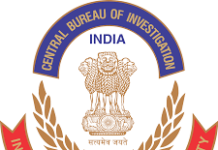
The National Mission for Clean Ganga (NMCG) organised the 11th edition of Monthly Webinar Series with Universities ‘Igniting Young Minds, Rejuvenating River’ in collaboration with APAC News Network.
Giving the keynote address, NMCG Director General G. Asok Kumar talked about the importance of wetland conservation and their disappearance over the years adversely impacting the ecosystem in the Ganga Basin.
He emphasized the importance of wetlands in addressing the issues of control climate and its impact manifesting in various forms as they play a major role in maintaining natural cycles and offer support to a wide variety of aquatic species.
Kumar informed that India had signed the Ramsar Convention in 1982.
He said that there are 75 Ramsar sites across the country, out of which 23 are in the Ganga Basin.
After the year 2014, till now 49 wetlands have been identified and protected, spanning 13 lakh 26 thousand hectares of land.
He noted that through the Namami Gange Mission, the Government of India is working with full commitment towards the conservation of wetlands.
He discussed how in the last one year, natural solutions are being sought to solve the issues pertaining to river pollution.
He stressed on the wetlands being the best natural solution for treating dirty water and ensuring good water flows in the river.
“Protection of wetlands is necessary as they play an important role in keeping the rivers rejuvenated in a cost-effective manner,” he said, adding, “Wetlands trap the water and store it for a longer period, ensuring continuous flow of water in the rivers.
Besides, Wetlands also serve as water bodies to conserve rainwater as extensively exemplified in the ‘Catch the Rain: Where it Falls, When it Falls’.
Kumar exhorted the youth to become part of the Namami Gange programme and suggested a visit to wetlands in the Ganga Basin.
He urged the young students to collectively conserve at least 1 wetland in their area and motivate others to safeguard these essential water bodies of nature.
Brijesh Sikka spoke through a presentation on the initiatives, key issues and action points on wetlands conservation.
With a detailed introduction to wetlands and how they are the lifelines of societies, he noted wetlands being the source of water and food security, and regulatory of water regimes.
He reiterated that wetlands act as buffers for extreme events like floods and storms apart from treating wastewater.
Sikka noted how the wetlands support livelihoods and biodiversity with assistance in recreation and cultural identity.
He expressed concerns on continued degradation of wetlands and adverse impacts on it through sectoral development.
With wetlands being integral to the Central Asian Flyway, there is fragmentation of hydrological regimes, catchment of degradation, conversion for alternate use, over-harvesting of resources, pollution and prevalence of invasive species being the major threats to wetland conservation.
He noted 35% of wetlands have been lost since 1970 with the rate of loss greater than that of forests.
He referenced the Ramsar Convention, the 3 pillars of the convention and the regulatory framework of the Wetlands Rules 2010.
He also highlighted salient features of the National Plan for Conservation of Aquatic Ecosystems, with an overview of Ganga River basin and the integrated river rejuvenation activities being undertaken by the Namami Gange Project.
He talked about the collaboration between NMCG and WWF-India to develop a roadmap for integrating wetlands in river basin management, and the 4 pronged approaches to rejuvenating the wetlands.
Dr H. N. Nagaraja initiated his address by emphasizing the importance of supplying clean water to all and stressed on the relevance of maintaining the integrity of the rivers.
With global warming and rapid increase in urbanisation activities, rivers are polluted and their water levels are unstable.
He discussed issues of sewage infrastructure, cleaning of water, and the importance of maintaining the biodiversity of aquatic species to preserve the ecosystem.
Carrying forward the discussion on the current impacts of global warming, Prof. Chandra Shekhar Dubey spoke about the rivers becoming perennial to seasonal with rising mountains on the frontal portion.
He said that this has been slowly cutting the rivers through the system on the land level.
He also talked about an active interest and awareness within the public regarding conservation of natural resources, especially water, and address
National Mission for Clean Ganga (NMCG) organised the 11th edition of Monthly Webinar Series with Universities ‘Igniting Young Minds, Rejuvenating River’ in collaboration with APAC News Network.
This month’s webinar was themed ‘Wetland Conservation’. The session was presided over by G. Asok Kumar, Director General, NMCG. The panellists of the webinar included Dr. H. N. Nagaraja, Director General & Ex-Vice Chancellor, Graphic Era University, Dehradun, Prof. Chandra Shekhar Dubey, Vice Chancellor, K. R. Mangalam University, Gurugram, Brijesh Sikka, Senior Consultant, NMCG and Najeeb Ahsan, Senior Communication Manager, NMCG along with students of IILM University – Gouri Kumar and Mehek Parikh.






